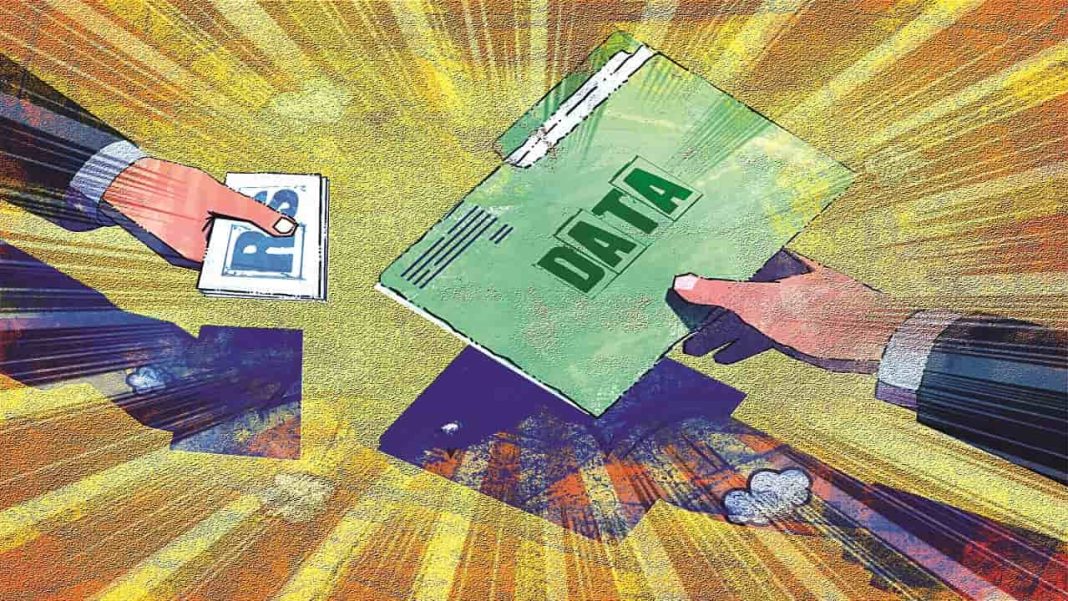By Kamesh Shekar
The Draft Data Accessibility and Use Policy acknowledges the value of data that government departments collect and makes it accessible to the larger ecosystem to extract economic and social benefits. This will also help start-ups, the research community and enterprises unlock the value of data. While there are a few key elements of the policy that aid in enabling access to public sector data, some of the provisions, if enhanced, could be leveraged to unlock the maximum potential and aim of the policy.
The policy proposes monetising detailed data sets that have gone through value addition or transformation while keeping the minimally processed data sets accessible for free. Also, the policy proposes to incentivise data sharing by setting up a licensing framework and enabling price discovery using novel monetisation models. To realise the actual value of the data, price discovery models must be context-specific instead of a fixed price for all data sets. It is essential to understand that data sets cannot be priced uniformly and the value of a particular data set varies depending on the context in which it is utilised. For example, healthcare providers’ health data may be valued differently by the government, public health research institutions and pharmaceutical companies.
The policy contemplates creating an Indian Data Council comprising the Indian data officer and chief data officers of central and various state governments. The Council will then be tasked with defining high-value data sets, facilitating sharing, and behave as an institutional body that fosters data sharing and creates policies. While this is a welcome move, two key elements must be noted here.
Firstly, there are various sectoral regulators and future data protection authority (once a new data protection bill is introduced and enacted) to govern and regulate data in India. As India Data Council will constitute data sharing policies, it might clash with the jurisprudence of the other existing and future regulators. Therefore, the India Data Council must find ways to coordinate with other related regulators to ensure consistency in implementation. Secondly, the policy must ensure that India Data Council is financially sustainable and has enough capacity to serve its mandate by incorporating technical and legal experts as part of the Council.
While consolidating databases and creating access for the government to search, share and use data easily is a welcome move, at the same time, the data sharing toolkit, which helps ministries and government departments optimally manage the risk of sharing data, must command transparency and accountability from acquiring organisations or individuals to ensure the shared data is not misused. Moreover, the toolkit must lay out procedures for data requestion where the acquiring organisation or individuals specify the purpose of data collected. The toolkit must aid ministries to ensure that data is processed only for the stipulated purpose, nothing incompatible with the specified purpose.
Besides, as this policy applies to non-personal data as well, the toolkit must discuss the harms associated with non-personal data to aid ministries monitor fall through the crack appropriately. For instance, the interlinkage of non-personal data (anonymised) set can reveal the individuals’ identity due to triangulation and also cause collective privacy harm.
Moreover, while the policy talks about data standards, as we move towards opening the data, it is also essential that India Data Council notify standards that would ensure the integrity and cleanliness of the public sector data. This becomes crucial as State and non-State actors use the public sector data for real-life interventions and applications. Besides, it is also essential that the future India Data Council develop mechanisms through which government departments can access the public sector data and periodically audit the same for quality in terms of integrity and cleanliness.
As India’s digitalisation trend is growing exponentially, the government’s move towards opening public sector data to unlock social and economic benefits is a step in the right direction. As we move forward, the government needs to implement the India Data Accessibility and Use Policy by enhancing the draft version by incorporating some of these to unlock maximum potential.
—The writer leads the privacy and data governance vertical at the Dialogue, a research and public policy think-tank


